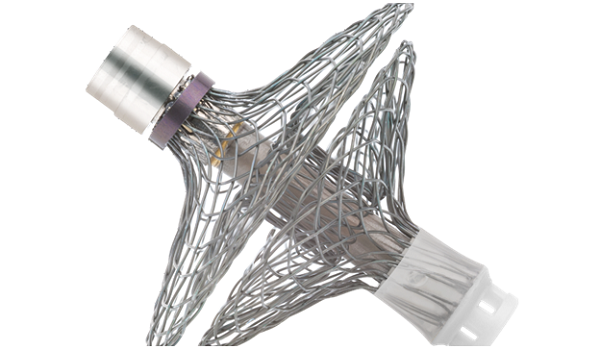White City Patient Has Microcomputer Fitted In Heart
Among first in world device which could transform lives of people with heart failure

A 71 year-old patient at Hammersmith Hospital in Du Cane Road in White City is among the first in the world to receive a wireless in-heart microcomputer as part of a clinical trial.
Doctors hope that the ground-breaking technology could dramatically improve the quality of life for people living with heart failure, helping them better manage the condition and reduce the need for re-admissions to hospital.
The device, called -V-LAP, is implanted in the heart’s left atrium, from where it feeds back early, accurate data about pressure changes in the heart. The sensor does not have a battery and is charged remotely from outside the patient’s body using a chest strap which also collects and transmits the data to doctors.
Vectorious, the company behind the device hopes that by providing daily pressure readouts from the heart - rather than relying on physiological symptoms which appear at a late stage of the disease - doctors will be able to pre-emptively adapt treatment plans for individual patients and reduce the need for them to be admitted to hospital.
This would not only improve the quality of life for the patient but, as heart failure is the most common reason for people over 65 to be admitted to hospital, accounting for 63,000 emergency admissions a year, the device could help make significant savings for the NHS.
The clinical trial was launched at hospitals including Hammersmith, part of Imperial College Healthcare NHS Trust, in January 2019. Nine heart failure patients across Europe have been fitted with the device so far.

Dr Zachary Whinnett, consultant cardiologist at Imperial College Healthcare, who carried out the procedure, said: " The V-LAP device promises to provide a significant step forward in the management of people with heart failure. Heart failure is usually a chronic heart condition, which can cause a high symptom burden and often requires frequent admissions to hospital.
" The V-LAP device provides remote daily monitoring of clinical status, as it directly measures pressure within the heart. The aim is to be able to tailor treatment to the individual person, so that we can make changes in treatment at an early stage in order to prevent worsening symptoms and hospital admissions."
The minimally-invasive procedure to implant the device is completed in less than an hour. It is anticipated that patients will be able to return home the same day after the operation and can start using the device immediately.
The data provided by the device will be securely analysed using artificial intelligence in order to provide doctors with information to help them intervene early, to detect important events and help patients remain well balanced and medically safe.
Oren Goldshtein, Vectorious' CEO said: " We believe the V-LAP sensor represents a real step change in the treatment of heart disease for the one million people living with heart failure in the UK.
"Since the pressure of the heart’s left atrium is the earliest and most accurate real-time indication of heart failure exacerbation, the feedback provided by the V-LAP will enable a significant improvement in ongoing management of these patients. It will enable doctors to adjust the patient’s medication early enough, often remotely, and as a result avoid their condition worsening and a re-admission into hospital.
" By having individual, long-term data for each patient, doctors will be able to react to each individual, rather than resorting to what often amounts to guess work and estimations that are currently the case.”
Heart failure means that your heart is not pumping blood around your body as effectively as it should. It results from reduced blood flow, due to the heart’s “pump failure”, causing pressure to build up in the lungs as well as insufficient supply of oxygen to tissues, ending in respiratory symptoms as well as fatigue. When this condition is severe it may result in pulmonary edema where the lungs are congested with fluid. By detecting pressure in the heart earlier, doctors can use simpler and less invasive interventions such as medication changes to help sufferers prevent deterioration.
The V-LAP microcomputer allows accurate day to day monitoring of the pressure within the left side of the heart, which is where the pressure build-up begins in the early stages of a heart failure deterioration. The traditional method to measure these pressures is an invasive procedure that takes a single ‘snapshot’ measurement. In reality, the pressure is changing all the time, and so being able to measure those changes in real-time might allow doctors to react much faster to episodes of worsening heart failure.
March 9, 2020
Related links
|